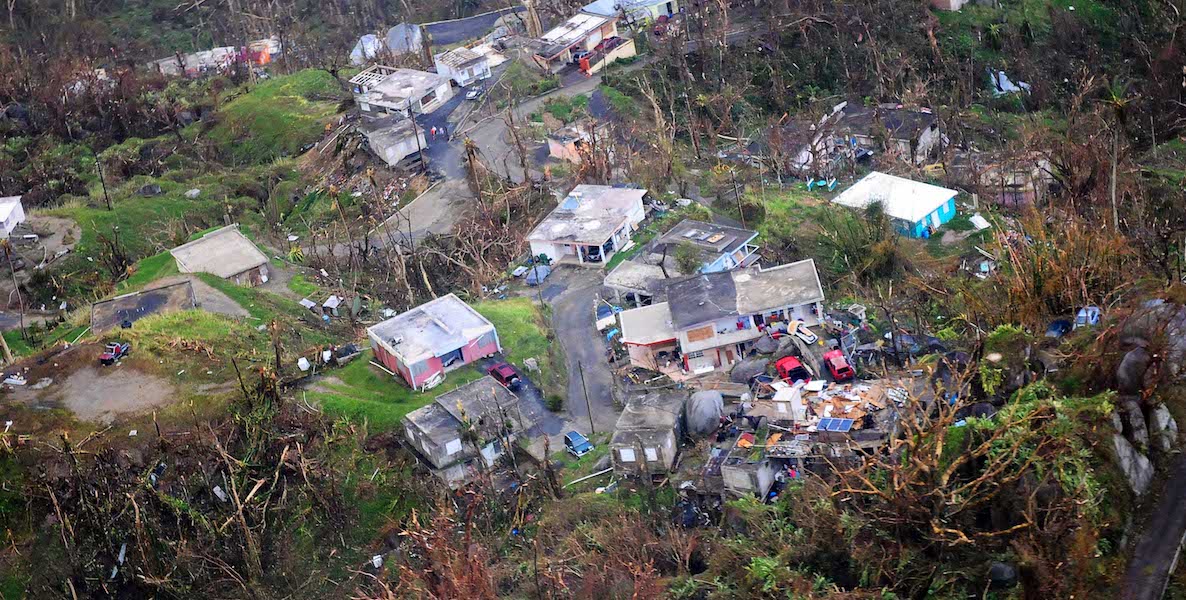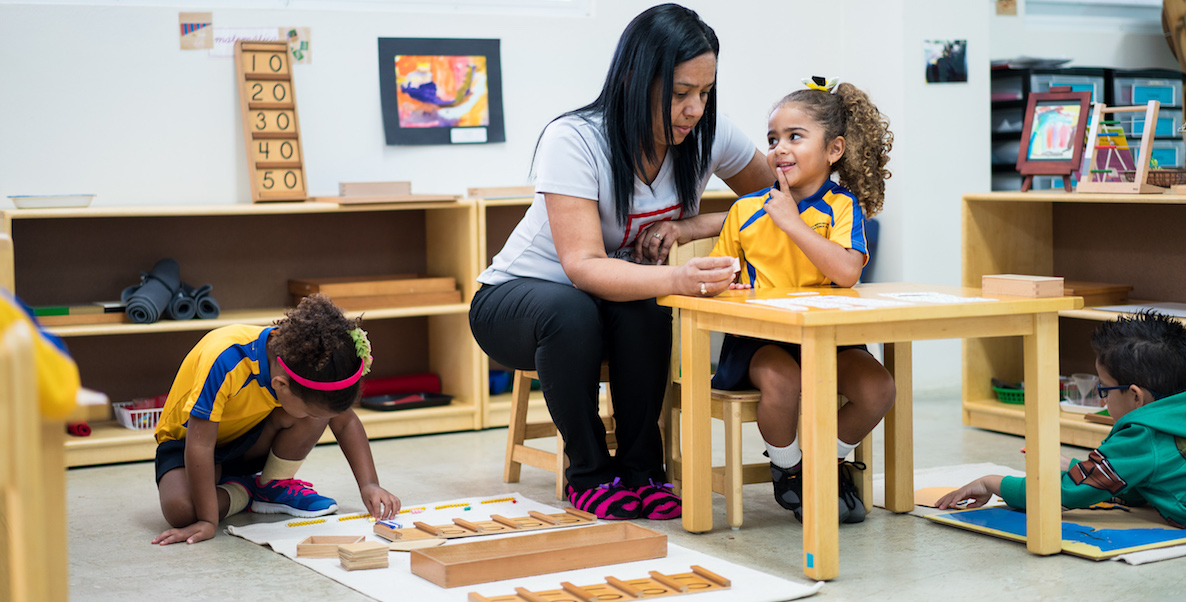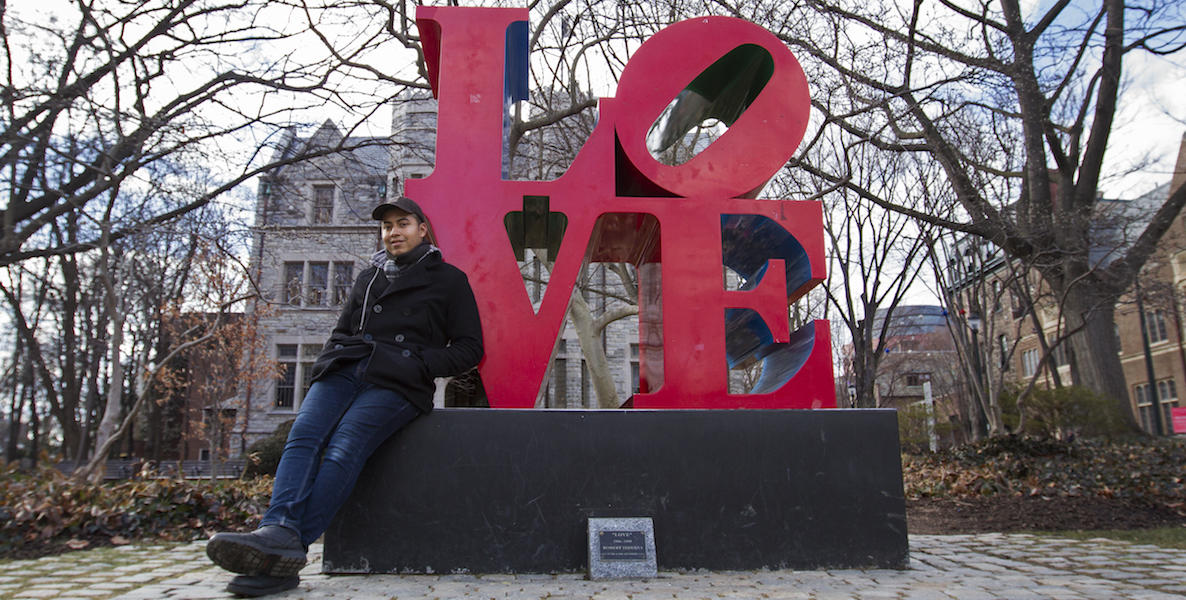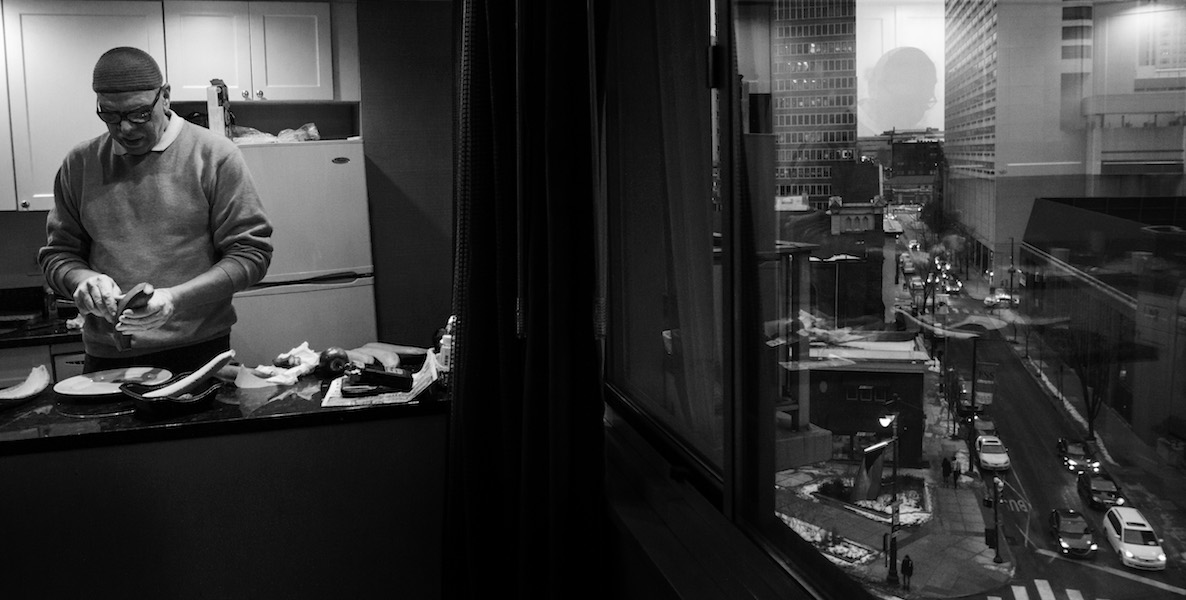Last summer, my friend Gustavo and I went to Freddy & Tony’s, a North Philadelphia staple that serves Puerto Rican classics. We were homesick and in need of mofongo, amarillitos, tostones, along with all the other infinite variations of plantain-based dishes our island makes so well. We were left full of rice, beans, and happiness. The salsa blasting in the background and the Spanish being flung around felt like a comfortable normal we hadn’t experienced in a while. Walking through the streets around the restaurant after our meal—surrounded by colmados, panaderias, and beauties—felt like a walk around Calle Loíza in San Juan’s Santurce neighborhood.
Considering how many traditionally Puerto Rican neighborhoods there are around the city, it should come as no surprise that after New York, Philadelphia has the second-largest boricua community in the US, with 135,000 Puerto Ricans. We represent 8 percent of the city’s population and 75 percent of the Hispanic/Latinx population.
![]()
And our presence is palpable. From judges, to professors, to politicians, to street sweepers, to janitors, to lawyers, to writers, to athletes and cooks, we have richly participated and contributed to this city’s life, history, culture, and economy.
After Hurricane Maria, droves of Puerto Ricans have been joining their compatriots and making Philadelphia home. According to the Center for Puerto Rican Studies at Hunter College, as many as 27,000 Puerto Ricans could arrive in Pennsylvania during 2018, making it the second “most affected” by this storm-driven exodus. As of December 2017, 1,952 individuals and 875 families had already been assisted by the Disaster Assistance Service Center of Philadelphia. These numbers only reflect those who self-identified as needing assistance in their relocation—in other words, only a segment of the overwhelming influx that the city will be and already is managing.
As you read this, survivors of Maria’s wrath are scrambling for work and shelter in Philly, looking to start anew. The storm has washed away the only life they have ever known. They are taking it day by day, figuring out what the next steps are as opportunities pop up, uncertain of their future.
Many Puerto Ricans are arriving here without speaking a word of English, and without any belongings or money. They have no winter clothes, and many are getting by on just one meal a day. Many live in unsafe and cramped conditions and stay wherever they can find and afford. Some have found lodging with relatives; others are are in temporary shelters set up by partnerships between local government, FEMA, and companies in the area.
Those who left and those who leave do not do so out of a lack of love, but out of necessity. Our small island in the Caribbean is their North star, and many of them are motivated by the hope that their future success stateside will empower them to make an impact back home.
At least they were, until today. Now FEMA has served eviction notices to many of the 87 families in Pennsylvania staying in federally-funded hotel rooms. These families, who lost their livelihoods, communities, normalcy and homes overnight, will now be left homeless again.
The hurricane’s destruction has thus not only put pressure on my island’s resources. There is also a Puerto Rican evacuee crisis here. Philadelphia, like Puerto Rico, has been left largely alone to handle the situation. The “city has never had to beg for these supports before,” Mayor Kenney’s spokeswoman, Lauren Hitt, said in November. “With every other natural disaster that’s happened on the mainland where individuals affected fled to Philadelphia, we received significant federal support.”

It’s easy not to notice the incoming population: Many of the displaced Puerto Ricans are flocking to the historically boricua-dominated areas of the city, which tend to be Spanish-speaking, poorer, brown, and marginalized. Their pressing needs are escaping much of the media and mainstream conversations. Like the storm, the general public’s attention came and went as quickly as Maria.
But we are not getting the whole narrative if the boricua perspective is being omitted or limited to a 10-second soundbite. Maria, the biggest disaster in Puerto Rico’s modern history, is best represented in voices, not statistics on mortality, infrastructure and immigration, even if these are handy tools to understand the situation.
Many of the displaced Puerto Ricans are flocking to the historically boricua-dominated areas of the city, which tend to be Spanish-speaking, poorer, brown, and marginalized. Their pressing needs are escaping much of the media and mainstream conversations. Like the storm, the general public’s attention came and went as quickly as Maria.
As a Puerto Rican writer who has been living away from home for the last four and a half years, the best way I could help post-hurricane was by making room for others to tell their stories, particularly, those who might not necessarily have the opportunity to do so.
Las voces de Maria, or Voices of Our Hidden Refugee Crisis, is a multimedia project which profiles new Philly Ricans displaced by the hurricane. It was born out of a desire to provide recently diasporic boricuas with a creative, therapeutic, and interactive platform to express themselves after the traumatic storm. Part-text, part-video, and part-photo, it hands over to Puerto Ricans the opportunity to share their stories through different tools and mediums.

Maria was deeply felt on both a personal and collective level. Las voces aims to reflect both the intimate and national losses. The cyclone’s survivors who are featured in the project come from all over the island and from all walks of life. Each piece provides people with the space to share their perspectives and opinions. Together, all the stories form a chorus on life before, during, and after the hurricane.
This reconstruction of narratives, like the reconstruction of our island, is vital to our healing process.
Across all of my interviews, no matter how different people’s backgrounds were, everyone shared one thing in common: A devotion and passion to our people and our land. Puerto Ricans on the island are still suffering and struggling. The ones over here are learning how to handle this new normal. Yet, every day, we are finding joy in being alive, in having survived, in being Puerto Rican.
![]() Those who left and those who leave do not do so out of a lack of love, but out of necessity. Our small island in the Caribbean is their North star, and many of them are motivated by the hope that their future success stateside will empower them to make an impact back home.
Those who left and those who leave do not do so out of a lack of love, but out of necessity. Our small island in the Caribbean is their North star, and many of them are motivated by the hope that their future success stateside will empower them to make an impact back home.
It is this love that guides me to pursue this project. I dedicate Las Voces de Maria to those who left, those who stayed, and those who will come back. And to Puerto Rico, which doesn’t need to get back on its feet, because it never fell down.
Puerto Rican hurricane refugee and student Jorge Muñoz, 22, poses next to the Love statue on the University of Pennsylvania campus in West Philadelphia. Muńoz moved to Philadelphia in October. He is currently working in one of Penn's administrates offices while finishing his degree at Philadelphia Community College. Photo by Cameron Hart Visuals






